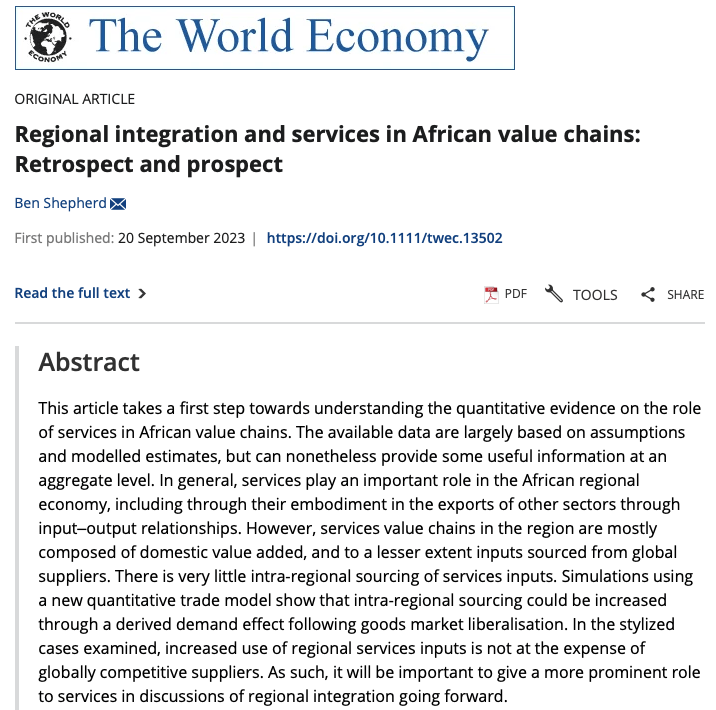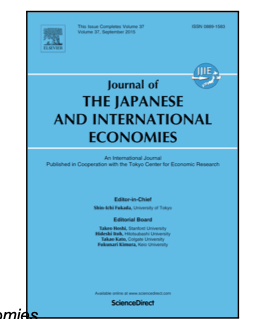︎

Ben Shepherd
Developing Trade Consultants
I combine a policy background with strong quantitative skills to provide policy-relevant research on the full range of trade and development issues. I have worked extensively with major international organizations such as the World Bank, OECD, Asian Development Bank, UNESCAP, APEC, and FAO. I have published more than 35 peer-reviewed journal articles, and a similar number of book chapters. My 2022 World Economy article won the inaugural Corden Prize for the most significant contribution to the evaluation of trade policy. I am also the co-founder of the Trade Policy Research Forum, a volunteer online community bridging the gap between research and practice in trade policy. My particular areas of specialization include: Trade policy, global value chains, global trade modeling, trade facilitation and logistics, and trade in services.
MORE ABOUT BEN SHEPHERD >2023
Ben Shepherd
Regional integration and services in African value chains: Retrospect and prospect
This article takes a first step towards understanding the quantitative evidence on the role of services in African value chains. The available data are largely based on assumptions and modelled estimates, but can nonetheless provide some useful information at an aggregate level. In general, services...

2022
Ben Shepherd
Modelling global value chains: From trade costs to policy impacts
I use an approach from the family of ‘new quantitative trade models’ to explore the links between trade costs and integration in Global Value Chains (GVCs). The model conceptualises GVC trade through a multi-country, multi-sector Ricardian model that nests the standard structural gravity model. ...

2019
Ben Shepherd
Mega-regional trade agreements and Asia: An application of structural gravity to goods, services, and value chains
We use a flexible estimation and simulation platform built on the standard structural gravity model to analyze the trade and welfare implications of mega-regional trade agreements for Asian countries. Our counterfactuals suggest that all current mega-regional scenarios have the potential to generate...

